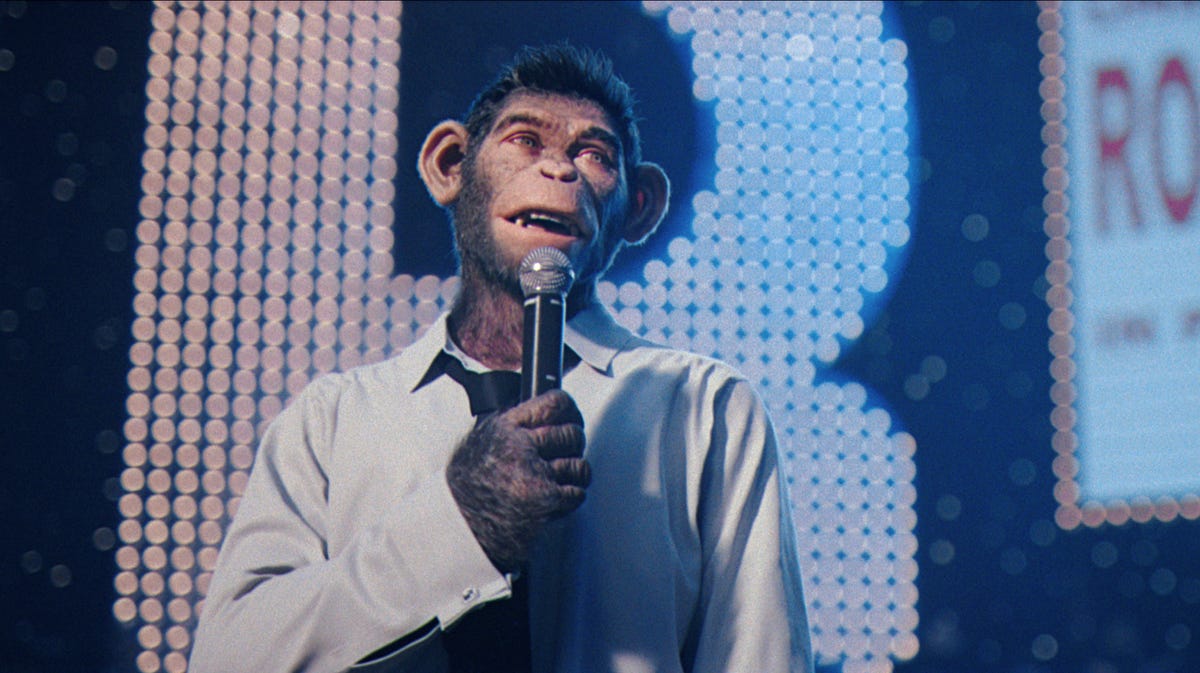Movie Reviews
Stream It Or Skip It: ‘The Covenant’ on VOD, Guy Ritchie’s Rousing Stab at Earnest Modern-Wartime Storytelling

The full title of The Covenant is technically Guy Ritchie’s The Covenant (now streaming on VOD services like Amazon Prime Video), which differentiates it significantly from similarly titled movies that are either religious in theme or horror tales. Interesting how Ritchie’s name is so prominent here, considering it’s a creative departure for the veteran director, and is Not Your Father’s Guy Ritchie movie – although it’s such a straight and square story of valor and honor, your father is more likely to enjoy it than, say, Snatch. The former Mr. Madonna tames his stylistic flourishes for this one, casting Jake Gyllenhaal as an Army sergeant during the War in Afghanistan who finds himself in a world of shit alongside Dar Salim’s Afghan interpreter. First impression? The movie – a fiction set during an all-too-real war – smashes assumptions that Guy Ritchie could never make a movie rooted in earnestness.
The Gist: Onscreen text explains how the U.S. military employed 50,000 interpreters to assist soldiers on the ground during the 20-year Afghan occupation. MARCH, 2018: Sgt. John Kinley (Gyllenhaal) leads a special-ops team assigned to sniff out and neutralize Taliban weapon storehouses. They’re manning a checkpoint when a sketchy situation unfolds: An Afghan man in a truck resists a search, then seems to be slowly backing away from his own vehicle. It explodes, killing one of Kinley’s soldiers and an interpreter.
Back at the base, Kinley eyeballs a half-dozen guys to be the new interpreter. They have to be experienced. Rough. Battle-ready. “Basically, we get in trouble,” is how Kinley explains the gig to Ahmed (Salim). He’s OK with that. He knows four languages, knows a lot of people – “I’m a man about town” – and can fix anything with an engine. Ahmed is a straight shooter – when asked why he wants the job, he says he needs the money. And Ahmed is that in a literal sense, too, which will come in handy when they get in scrapes. During their first outing, Ahmed goes off script. He’s too smart to follow Kinley’s orders to a T. He shoots straight: “Your intel is poo poo,” Ahmed tells Kinley – and he’s right. They banter a bit, all deadpan. Between them, they’ve seen a lot of shit. Turns out Ahmed used to deal heroin with his brother, but the Taliban killed his son and his loyalty shifted; now his wife is pregnant. On their second outing, Ahmed sniffs out a mole in Kinley’s unit, saving everyone’s ass from an ambush. Trust is established.
As for their third mission? It’s promising. Kinley leads the group to an old mine where the Taliban stashes a mess of arms. They have control of the situation until, as they say, they don’t. More and more Taliban fighters arrive and even though their marksmanship makes Stormtroopers look like Olympic biathlon competitors and Kinley and Ahmed rarely fire a round that doesn’t hit a bad guy, there’s just too many. Our two guys take off down the mountain and try to work their way god knows how many clicks back to the base, stabbing and choking Taliban mofos when shooting wouldn’t be aurally prudent, and camping out for a night or three. They seem to be in the clear until, as they say, they aren’t. Kinley takes a bullet. Then another. And then a rifle butt to the forehead. Where’s Ahmed? Hold tight. He’s nearby. Did you ever doubt the guy? No? Well, you were right f—ing on, then.
What Movies Will It Remind You Of?: The Covenant is a far cry from Ritchie’s flippant, enjoyably empty Jason Statham outings of late, e.g. Operation Fortune and Wrath of Man. The director ends up outdoing Peter Berg at his own 21st-century desert-based wartime action-drama game – Berg helmed The Kingdom and Lone Survivor – and functions as a metaphor for the U.S.’ catastrophic 2021 withdrawal from Afghanistan, so terrifyingly captured in 2022 documentary Escape from Kabul.
Performance Worth Watching: We are well aware that the intensity of Gyllenhaal’s performances is nigh-legendary – Nightcrawler, Enemy, Prisoners, Jarhead, Zodiac, and the list goes on. His performance in The Covenant is up to par, absolutely, but Salim is a revelation, confidently holding his own across from the patented Gyllenhaal intensity, each actor drawing depth of character out of the other.
Memorable Dialogue: Ahmed splits a hair:
Kinley: You’re out of bounds, Ahmed. You’re here to translate.
Ahmed: Actually, I’m here to interpret.
Sex and Skin: None.
Our Take: It’s telling how Ritchie never indulges one of his signature sequences in The Covenant, a flash-forward with voiceover narration in which the leader of an endeavor outlines the plan while we watch the players set up the scenario accordingly – the film-directorial version of arranging the chess pieces on the board to execute strategy. The situation in Afghanistan was far too unpredictable and volatile, and if Ritchie had succumbed to such a stylistic extravagance, he’d undermine his own credibility as a storyteller who’s capable of taking seriously a tragic morass of an international conflict like the War in Afghanistan. Although his protagonists often pull off acts of daring and heroism to rival action-movie stars, this is clearly Ritchie’s most straightforward effort yet, a stylistically grounded, emotionally earnest picture boasting strong lead performances and several high-tension action sequences.
The dynamic here is our investment in Kinley and Ahmed’s survival – they’re good people, family men, with simple convictions. Ritchie isn’t interested in the politics of the situation, a hopeless war that cost many countries many lives and, in the end, accomplished very little. It’s essentially a male-bonding story about two unlikely comrades saving each other’s asses, and the screenplay does its due diligence by addressing the psychological trauma they endure. Well, at least that Kinely endures, since the situation he finds himself in ends up mirroring the disservice done to Afghan citizens with the U.S.’ botched withdrawal. It’s a sincere sentiment, if not exactly a deep one; the metaphor is a bit flimsy, and Ritchie’s acumen for staging and executing shootouts and stalk-and-stabs is stronger than his ability to make poignant political commentary. But his eye remains on the people on the ground, which very well may be his point – in this situation and in real life, our hearts should be with them.
Our Call: The Covenant is a rock-solid modern-war thriller that keeps us locked in for two hours. STREAM IT and give Ritchie a nod of approval for diversifying his oeuvre.
John Serba is a freelance writer and film critic based in Grand Rapids, Michigan.

Movie Reviews
Wolf Man (2025) – Movie Review

Wolf Man, 2025.
Directed by Leigh Whannell.
Starring Christopher Abbott, Julia Garner, Matilda Firth, Sam Jaeger, Ben Prendergast, Benedict Hardie, Zac Chandler, Beatriz Romilly, and Milo Cawthorne.
SYNOPSIS:
A family at a remote farmhouse is attacked by an unseen animal, but as the night stretches on, the father begins to transform into something unrecognizable.

While father Grady (Sam Jaeger) and young son Blake (played by Christopher Abbott as an adult following the prologue) are hunting in the Oregon woods, his wisdom is that “dying is the easiest thing to do,” seemingly toughening his boy up mentally and physically to be prepared for anything life throws at him. That’s also a piece of philosophy from the toxic masculinity playbook, with Grady also obsessed with hunting down a man rumored to have contracted a disease resulting in animalistic characteristics, which perhaps isn’t surprising for a film titled Wolf Man.
Roughly 30 years later, Blake is a writer estranged from his father but is now a husband to journalist Charlotte (Julia Garner) and a dad to young daughter Ginger (Matilda Firth), who catches himself falling into the same easily irritable traits of his father, often flying into brief instances of yelling and mild verbal abuse whenever he feels that the latter might be putting herself in danger as a result of not listening to him.

A “spirited exchange” also shows that the love might be burning out in this marriage as Blake grumpily urges Charlotte to take an important call with her editor to another room, conflicted on how to feel upon receiving paperwork informing him that his father is officially deceased. One thing is clear: he loves his family (Ginger also reciprocates that) and wants to make the family dynamic work, perhaps out of fear that he will become estranged from them, too. There is also a question of how much of his father has bled into him and if that can be removed or corrected.
This also might sound like an excessive amount of setup for a creature feature adaptation of a classic monster but worry not, co-writer/director Leigh Whannell (penning the screenplay alongside Corbett Tuck) is efficient in establishing these characterizations and dynamics, quick to funnel the family off to a summer vacation in the Oregon woods Blake grew up in, where a wolf man attacks before they even reach his childhood home. In this suspenseful sequence that amounts to a somewhat inspired take on the otherwise clichéd set piece of a vehicle swerving off the roads and into the woods, the moving truck is left suspended in midair, held together by various tree branches and Blake desperately tries to get his wife and daughter to safety, but not before unknowingly contracting the same aforementioned animalistic disease.

Admittedly, it is undeniably apparent where this is all going, especially with a bluntly delivered central metaphor. Wolf Man is also lacking in the ferocious bite, timeliness, and general wow factor of his universally acclaimed but criminally overlooked during awards season, The Invisible Man, but is well-crafted (complete with firsthand perspectives into what Blake is seeing and hearing throughout the transformation, something that comes with exceptional animalistic and heightened sound design distorting dialogue and audio from household appliances, bugs crawling along the walls, and more.)
The transformation aspect, yielding strong work from Christopher Abbott regarding both physicality and emoting, also boasts some truly impressive practical effects and makeup, playing into a humanized concept. Matilda Firth is also a newcomer highlight, terrified of what’s happening to her father but holding onto that love. There are tender moments here that are naturally cut short for more body horror, effectively working in tandem. It’s a film taking its premise seriously and dramatically but with enough sincerity and visual skill to pull that off. There are also gnarly one-and-one wolf-man battles, so the film delivers what’s to be expected.

103 minutes is a standard running time, but Wolf Man moves fast, functioning as tense theme park horror with solid thematic storytelling and such relentless pacing that it only feels like an hour long. The one downside to that is that, early on, some of that characterization comes to a halt and isn’t developed any further. Some of that nuts and bolts minimalism is appreciated; the film is simultaneously restrained yet embraces its genre roots to gnarly effect with heart at its core.
Flickering Myth Rating – Film: ★ ★ ★ / Movie: ★ ★ ★
Robert Kojder is a member of the Chicago Film Critics Association, Critics Choice Association, and Online Film Critics Society. He is also the Flickering Myth Reviews Editor. Check here for new reviews and follow my BlueSky or Letterboxd
Movie Reviews
Movie review: 'Sirocco and the Kingdom of Winds' (2023)

Sirocco and the Kingdom of Winds (trailer) is a 2D children’s animated fantasy film, a Franco-Belgian production released in 2023, directed by Benoît Chieux who co-wrote it with Alain Gagnol. Imdb rates it 7/10.
Carmen and Juliette are sisters, whose mother drops them off with her friend Agnes to babysit for a day. Agnes has forgotten they’d be coming, and asks if they can be quiet for a half-hour while she takes a much-needed nap. She’s the author of a long-running book series called Sirocco, and had been staying up all night writing.
Unable to sit still, Juliette rifles through one of Agnes’ books, weird stuff happens, and the sisters end up in the world of the book, transformed into cats. After Juliette gets them in trouble with the local mayor, they embark on a quest with an avian opera singer named Selma to find the elusive Sirocco, a mysterious, reclusive, and mercurial sorceror.
Story-wise, it’s very light on details; the relationship between the real world and the book isn’t made clear. Agnes is unaware of it, and people in the book appear to have a degree of self-determination. Character-wise, Carmen and Juliette end the film pretty much how they began it. They haven’t grown or learned much.
Even so, they’re good siblings who honestly love each other. Carmen is the older sister by a few years, and is used to having to be the responsible one who tries to keep the other in check. Juliette is the younger sister, impatient, impulsive, and because it’s her 5th birthday, she’s feeling a bit more entitled than usual. Personally I found her mildly annoying, yet written very realistically for her age. Two of her more impulsive moments in the film are pretty funny, too!

For me, the real star of the show was Selma, the opera singer, who’s more than happy to go on a journey to help the kids. I loved her ethereal singing, performed by Aurélie Konaté. Sirocco himself remains largely an enigma. And there’s an additional creature, a cross between the floating polyps from a Jim Woodring comic and those suburban flailing tube guys.
Really, it’s the visual design and the unusual adventure that carry this film. Its subtle uses of shapes and flat colors were really nice to experience! Studio Ghibli was an obvious influence (particularly Spirited Away), and the director has also cited Yellow Submarine and Moebius. Yeah, I can see it in some of the creatures and spires.

Overall I liked Sirocco, but I don’t think it’s a must-watch, except for the curious. It’s extremely light children’s fare with an intriguing artistic style. I had a subtitled version, and there’s an English dub that may be available on Amazon Video, Apple TV, and from Microsoft, distributed by GKids.




Movie Reviews
Fear Movie Review: Promising psychological thriller with missed potential

Review: Director Dr. Haritha Gogineni takes a brave step into the realm of psychological thrillers, a genre rarely explored in Telugu cinema. However, Fear struggles to hold the audience’s attention due to its disjointed screenplay and uneven pacing. While the premise holds promise, the film falters in execution, with abrupt timeline shifts that confuse rather than intrigue.
Vedhika delivers a compelling performance, carrying the film’s weight on her shoulders, particularly in the pre-climactic and climactic scenes where her portrayal of Sindhu’s psychological unraveling feels authentic. Unfortunately, the supporting cast, including Arvind Krishna and Pavitra Lokesh, is underutilised, with their characters lacking the depth needed to make a significant impact. Anish Kuruvilla takes on the role of a doctor who provides insights into the condition. The ensemble cast also features Sayaji Shinde, Jayaprakash, Satya Krishnan, and Sahithi Dasari.
The technical aspects are a mixed bag. The cinematography and background score, though serviceable, fail to create the eerie atmosphere essential for a psychological thriller. The editing, too, leaves much to be desired.
Fear raises important issues surrounding mental health but fails to present them with the sensitivity or depth they deserve. What could have been a gripping exploration of the human psyche instead ends up as a muddled narrative.
Despite Vedhika’s earnest performance, Fear is let down by its underwhelming execution. A more polished output could have transformed this film into a memorable psychological thriller. For now, it remains an ambitious effort that misses the mark.
-

 Science1 week ago
Science1 week agoMetro will offer free rides in L.A. through Sunday due to fires
-
/cdn.vox-cdn.com/uploads/chorus_asset/file/23935558/acastro_STK103__01.jpg)
/cdn.vox-cdn.com/uploads/chorus_asset/file/23935558/acastro_STK103__01.jpg) Technology1 week ago
Technology1 week agoAmazon Prime will shut down its clothing try-on program
-

 News1 week ago
News1 week agoMapping the Damage From the Palisades Fire
-
/cdn.vox-cdn.com/uploads/chorus_asset/file/25826211/lorealcellbioprint.jpg)
/cdn.vox-cdn.com/uploads/chorus_asset/file/25826211/lorealcellbioprint.jpg) Technology1 week ago
Technology1 week agoL’Oréal’s new skincare gadget told me I should try retinol
-
/cdn.vox-cdn.com/uploads/chorus_asset/file/25832751/2192581677.jpg)
/cdn.vox-cdn.com/uploads/chorus_asset/file/25832751/2192581677.jpg) Technology4 days ago
Technology4 days agoSuper Bowl LIX will stream for free on Tubi
-

 Business6 days ago
Business6 days agoWhy TikTok Users Are Downloading ‘Red Note,’ the Chinese App
-
/cdn.vox-cdn.com/uploads/chorus_asset/file/25835602/Switch_DonkeyKongCountryReturnsHD_scrn_19.png)
/cdn.vox-cdn.com/uploads/chorus_asset/file/25835602/Switch_DonkeyKongCountryReturnsHD_scrn_19.png) Technology2 days ago
Technology2 days agoNintendo omits original Donkey Kong Country Returns team from the remaster’s credits
-

 Politics1 week ago
Politics1 week agoTrump to be sentenced in New York criminal trial



















